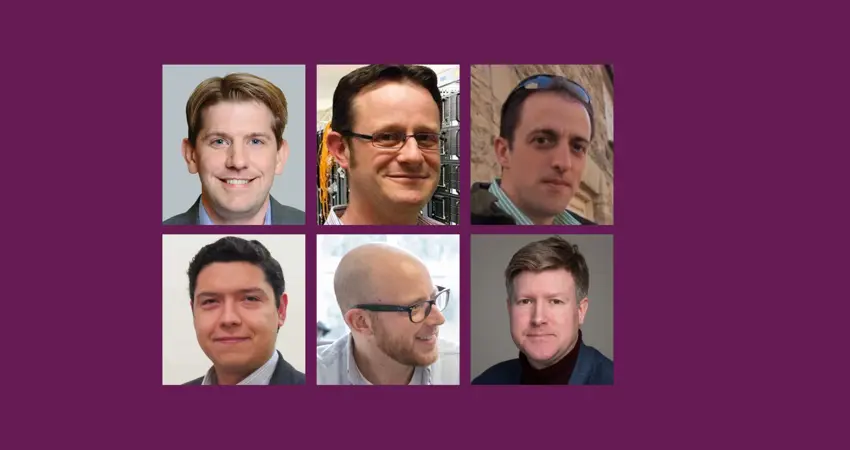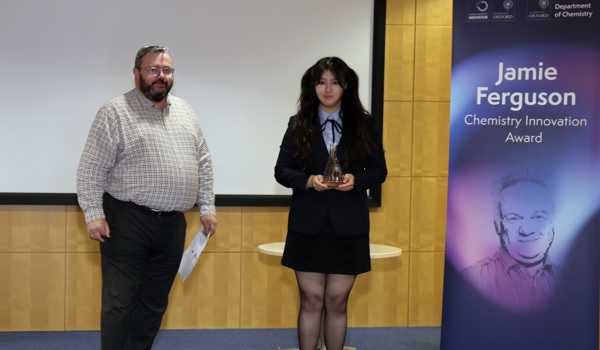30 Aug 2022
Six academics receive the title of Full Professor in Recognition of Distinction Awards
The title of professor is awarded to those who have made contributions to leadership, teaching and research within the University and within their affiliated department and/or colleges.

Clockwise from top left: Professors Monroe, Armour, Adcock, Castrejon-Pita, Hawes and Morris
In the latest round of Recognition of Distinction Awards, six Engineering academics have been granted the full Professorial title at the University of Oxford:
- Tom Adcock has been awarded the title of Professor of Engineering Science. His research group looks at how engineers understand the ocean environment and how infrastructure interacts with this, seeking to understand ocean hydrodynamics for applications such as marine energy.
- Wes Armour has been awarded the title Professor of Scientific Computing. Professor Armour is the Director of the Oxford e-Research Centre where he also leads the Scientific Computing Group. His research interests are in High Performance Computing, Scientific Computing, Digital Signal Processing, and GPU Computing.
- Alfonso Castrejon-Pita has been awarded the title of Professor of Fluid Dynamics. Professor Castrejon-Pita’s Fluid Dynamics Laboratory at Oxford focuses on the study of drops and liquid jets. Current research activities deal with the breakup of harmonically stimulated liquid jets, drop deposition and splashing dynamics, contact line dynamics, novel droplet generation techniques, and pinch-off of viscous filaments.
- Nick Hawes (Oxford Robotics Institute) has been awarded the title of Professor of Artificial Intelligence and Robotics. Professor Hawes’ research interests lie in the application of Artificial Intelligence techniques to create intelligent, autonomous robots that can work with or for humans. He has worked on long-term autonomy for mobile robots; mixed initiative or shared autonomy between humans and robots; information-processing architectures for intelligent systems; the integration of AI planning techniques into a variety of robot systems; and the use of qualitative semantic and spatial representations to enable robots to reason about the possibilities for action in their worlds.
- Charles Monroe has been awarded the title of Professor of Engineering Science. Professor Monroe is primarily interested in batteries and fuel cells, which his research group explores through both theoretical and experimental routes. They are primarily interested in how the performance, degradation and applicability of energy-storage devices correlate with the fundamental properties of the materials comprising them.
- Stephen Morris has been awarded the title of Professor of Engineering Science. Professor Morris runs the Soft Matter Photonics research group with Professor Steve Elston, which focuses on the design and development of new opto-electronic devices and components that are based upon soft materials such as liquid crystals and polymers. The research sits at the interface between engineering, materials science and physics and includes the development of new technologies for a range of applications.
Head of Department Ronald A Roy, adds: “I am impressed and extremely pleased with the breadth and quality of this year’s slate of new Professors. It is heartening to see our best mid-career academics so recognized, and I look forward to working with these colleagues in the years to come.”




